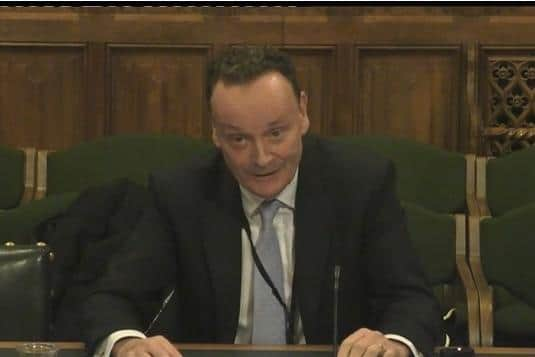Northern Ireland Troubles payments could take up to ten years to complete, MPs hear
and live on Freeview channel 276
The Northern Ireland Affairs Committee also heard that the scheme may require some victims to retell their story several times, and that some people who are eligible are not coming forward due to a lack of trust.
The committee met on Monday to discuss issues relating to the Troubles Permanent Disablement Payment Scheme, also referred to as the Victims’ Payments Scheme. The scheme was set up after years of campaigning by victims to distribute recognition payments for those seriously injured through no fault of their own in a Troubles-related incident.
Advertisement
Hide AdAdvertisement
Hide AdIt covers violence related to the Troubles between 1966 and 2010. Payments range from £2,000 to £10,000 per annum, or those over the age of 60 can choose to receive a lump payment.


The Victims’ Payments Board was established in February 2021 to determine applications for the scheme.
The president of the Victims’ Payments Board Mr Justice McAlinden recognised that there was a delay in payments but that there was “complexity” involved in assessing applications.
“I can fully appreciate that there are frustrations with the time taken in the processing of applications,” he said.
Advertisement
Hide AdAdvertisement
Hide Ad“The answer I meet them with is simply this – that the time taken is evidence of the care taken by the board to ensure that every application is dealt with fairly and properly.
“And every piece of information that can be retrieved is retrieved and carefully scrutinised to ensure that no-one falls through the net and no-one is left without an appropriate recognition of the harm that they have suffered.”
Mr Justice McAlinden also said that despite the scheme being time bound, it would require long-term financial investment and monitoring.
“Obviously, the scheme is time limited and I think we’re probably going to deal with the backdating issue as well, but in essence I would hope that all those who are eligible under the scheme will have their applications in before the scheme closes,” he said.
Advertisement
Hide AdAdvertisement
Hide Ad“In terms of when those applications will be processed and how long it will take to process all the applications, my estimate is that we will still have some form of residual board performing the process of making determinations on the 10th anniversary of the set-up of the scheme and probably beyond that.”
Ian Jeffers, commissioner of the Commission for Victims and Survivors NI, told the committee that during the application process some victims would have to relive traumatising experiences.
“They’re telling their story at that point to get it committed to paper, then they’re telling their story, you know, potentially two, three, four times along the way, quite often to people that they do not know and do not trust,” he said.
“And when we consider the nature of what they’re sharing, it takes time for victims to build that sort of trust, to feel confident to tell their story. And it’s simply wrong, I think, that we make somebody tell their story three, four or five times through this process, for the most complex ones, and those that need assessments and so forth.
“So I think that’s an area we should look at and see is there a way that that can be streamlined.”
Comment Guidelines
National World encourages reader discussion on our stories. User feedback, insights and back-and-forth exchanges add a rich layer of context to reporting. Please review our Community Guidelines before commenting.